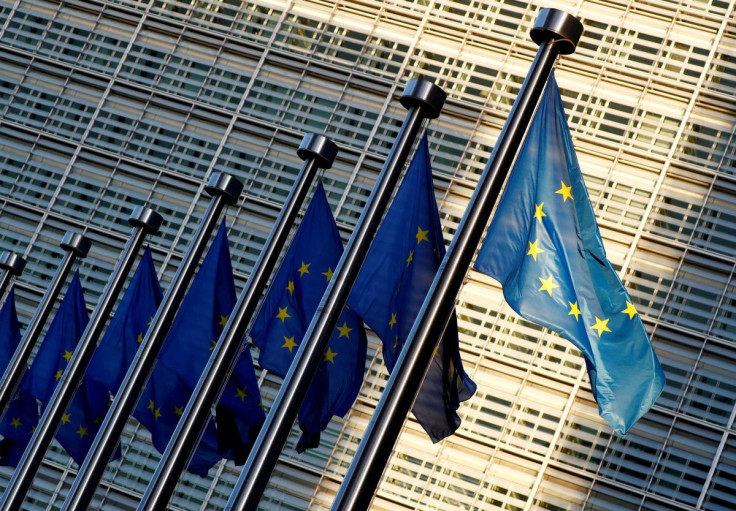EU Mulls New Measures Against Belarus, Withdrew Some Staff From Kyiv - Sources

The European Union is considering new restrictive measures to close loopholes on existing sanctions against Belarus, diplomats said, an issue that is likely to come up at a meeting of EU foreign affairs ministers on Monday.
The discussion comes amid concern over a possible Russian invasion of Ukraine, which could include Russian troops stationed in Belarus. Moscow denies that it is planning an invasion, but Western countries believe the opposite.
As a sign of further escalation on the EU's eastern front, the EU last week told non-essential staff to relocate from Kyiv, one EU diplomat said, while Ukraine is urging the EU to provide emergency support and military training.
Sanctions on Belarus were initially imposed after the President Alexander Lukashenko crushed protests following elections in August 2020, and have been tightened several times since then.
The diplomats said new measures could be aimed at closing loopholes that Baltic diplomats said are being exploited by Minsk to circumvent existing sanctions.
The EU has banned Belarus' exports of potash, a fertilizer made of potassium, and oil products. But diplomats said Belarus is still exporting it to the EU via Ukraine, and has also boosted its export to the EU of oil products obtained from coal.
Baltic country officials are expected to raise these issues at Monday's meeting of EU foreign affairs ministers, even if Belarus is not on the agenda of the meeting. No decision on the matter is expected on Monday.
A spokesperson for the EU diplomatic service declined to comment on discussions over sanctions.
UKRAINE
EU ministers are also expected to consider new support to Ukraine.
Kyiv made a request this week to the EU for emergency assistance which could include medical supplies, electricity generators and other first-aid equipment needed in case of attack from Russia, one EU official said.
EU countries, which have so far avoided sending weapons to Ukraine, are considering heeding these requests using the EU civil protection mechanism, the official said.
A spokesperson for the EU Commission, which coordinates civil protection support, did not immediately respond to a request for comment.
Ukraine has also requested EU support against hybrid and cyberattacks. That could be discussed at Monday's meeting together with plans for a possible EU military training mission in Ukraine, diplomats said.
The EU's withdrawal last weak of non-essential staff from its delegation in Kyiv is another sign of the worsening situation on the ground there.
The EU did not announce explicitly the withdrawal of some staff, but has said that the presence of personnel there could be adjusted. The EU delegation remains operational.
"This was not an evacuation but an adjustment of the presence at the workplace in Kyiv taking into account security circumstances," the EU diplomatic service spokesperson told Reuters.
Kyiv staff were allowed to continue working remotely from abroad.
© Copyright Thomson Reuters {{Year}}. All rights reserved.





















